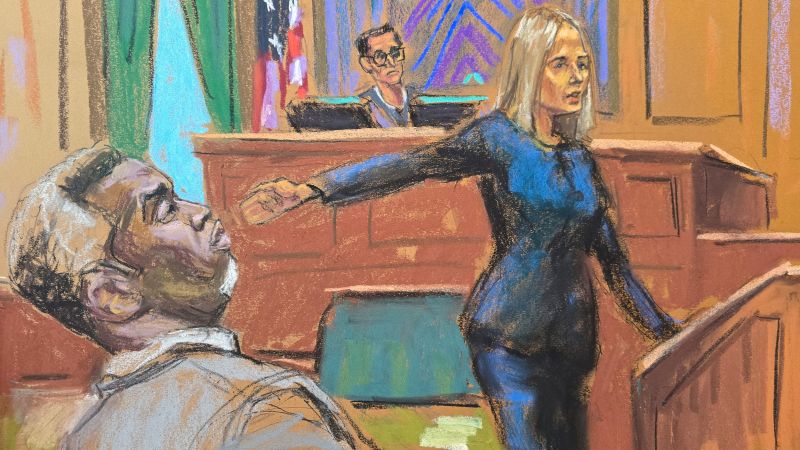In a high-stakes trial that captivated the entertainment world, Sean “Diddy” Combs was acquitted of the most severe charges against him, including racketeering conspiracy and sex trafficking by force, fraud, or coercion. The verdict was delivered on Wednesday, marking a significant setback for federal prosecutors from the Southern District of New York, who had promised to unveil a darker side of the hip-hop mogul.
The prosecution’s case, led by Assistant US Attorney Emily Johnson, aimed to portray Combs as the leader of a criminal enterprise. However, after 51 days of proceedings, the jury found the evidence insufficient to support the most serious allegations. The outcome has raised questions about the challenges of prosecuting complex criminal cases involving high-profile figures.
Challenges in Proving Racketeering Conspiracy
Racketeering conspiracy, often referred to as a “RICO” charge, is notoriously difficult to prove. It requires demonstrating that individuals were engaged in an illegal scheme with a structured criminal enterprise. In Combs’ case, prosecutors alleged involvement in crimes ranging from kidnapping to bribery and sex trafficking. However, the absence of direct testimony from alleged participants in the enterprise weakened the prosecution’s case.
CNN legal analyst Joey Jackson explained the typical expectations in such cases:
“When you look at the issue of RICO and racketeering, what you generally look at are mob bosses who have these underbosses who are furthering a criminal enterprise. You didn’t have that, nor did you have other people besides Combs sitting at that table.”
The lack of corroborative testimony from Combs’ alleged co-conspirators left the jury unconvinced of a coordinated criminal operation.
Sex Trafficking Charges and Relationship Dynamics
The prosecution’s case was further complicated by the nature of the sex trafficking charges. Testimonies described drug-fueled events labeled as “Freak Offs” and “hotel nights,” which prosecutors argued were orchestrated by Combs. The charges involved two counts of sex trafficking related to his ex-girlfriend Cassie Ventura and another woman identified as “Jane.”
Maria Cruz Melendez, known for her successful prosecution of R. Kelly, noted the difficulty in proving coercion within these relationships.
“At the end of the day, the jury had to be convinced that coercion was happening within the dynamic of that relationship,” she said.
The defense argued that the women willingly participated due to their affection for Combs, challenging the notion of coercion.
Legal experts highlighted the unconventional nature of the relationships involved. Joey Jackson pointed out,
“When you look at sex trafficking, you’re looking at not a long-term relationship, generally, of 11 years, as it related to Cassie Ventura, or three years, as it related to Jane.”
The defense effectively exploited the blurred lines between consent and coercion, leading to the acquittal on these charges.
Implications and Reflections on the Prosecution’s Strategy
Despite Combs’ conviction on two lesser counts, the trial’s outcome is widely regarded as a victory for the defense. CNN senior legal analyst Elie Honig criticized the prosecution’s approach, stating,
“The Southern District of New York – the vaunted SDNY, my beloved former office – got their teeth kicked in in this case. There’s no other way to say it. And the primary thing I attribute that to is they overcharged this case.”
While some, like Court TV anchor Julie Grant, believe the prosecution presented a solid case, the jury’s decision reflects the complexity and challenges inherent in such high-profile legal battles. Grant remarked,
“So certainly, with this verdict, we’ve got to respect it, like we do everyone here in America.”
This trial underscores the difficulties prosecutors face in securing convictions against prominent figures, especially when charges involve intricate criminal enterprises and personal relationships. As the legal community reflects on this case, it may prompt a reevaluation of strategies in future high-profile prosecutions.





































































